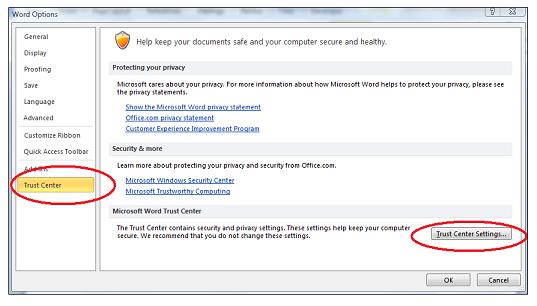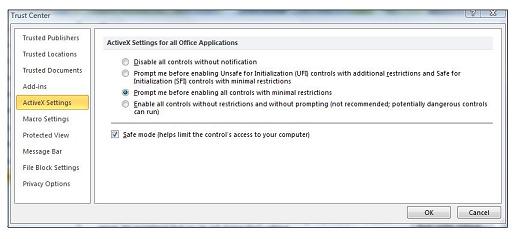Active content types in your files
Active content is additional functionality in a file or program, such as macros, add-ins, or data connections. This article lists types of active content that can be blocked by settings in Trust Center and which, when present in a document, cause display of the Message Bar when you open your file.
If active content is blocked, a Message Bar appears. If more than one type of active content is in the file, the Message Bar warns, Some active content has been disabled.

Check files by using Trust Center
In Trust Center, you can configure checks of content in files for computer viruses or other security hazards that can be delivered to your computer by active content. These checks prevent active content from running automatically, which helps to protect your computer and network by preventing unexpected or malicious content from running.
To learn more about Trust Center, see View my options and settings in the Trust Center.
To open Trust Center in an Office program
-
Click File, and then click Options.
-
Click Trust Center, and then click Trust Center Settings.

Types of active content
To see the types of active content that are blocked, click Trust Center Settings to open the Trust Center window.

You can also review the following list, which identifies various types of active and external content that are blocked by Trust Center. A Message Bar is displayed when the following types of active content are in your files:
-
ActiveX controls
-
Add-ins
-
Data connections
-
Macros
-
Excel 4.0 macros
-
Spreadsheet links
The following kinds of external content are linked externally to the file or are embedded, and they are blocked:
-
Linked object linking and embedded (OLE) files
-
Color-theme files
-
Cascading style sheet (CSS) files
-
XML expansion packs
-
Links to external pictures
-
Media files
-
Real-time data servers
-
XML manifests
-
Smart documents
No comments:
Post a Comment